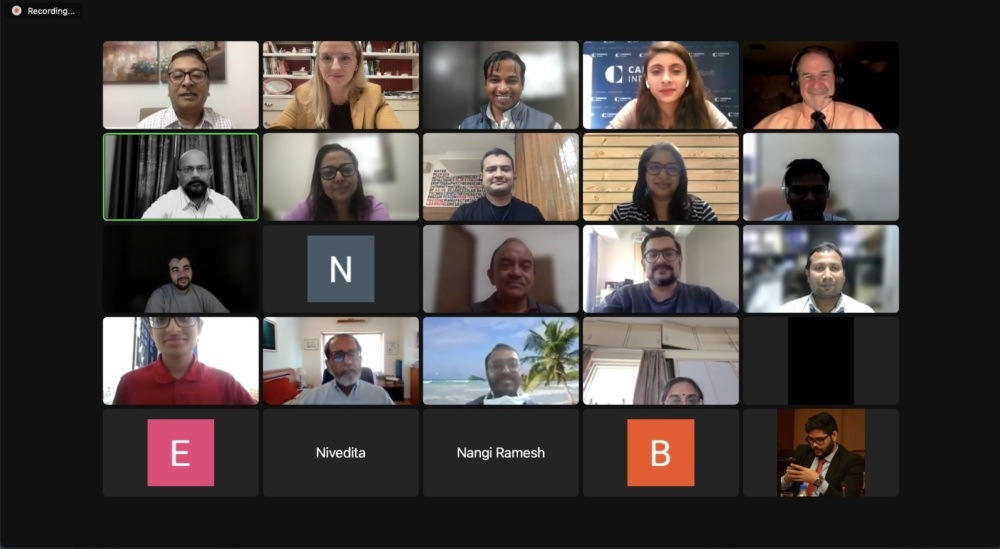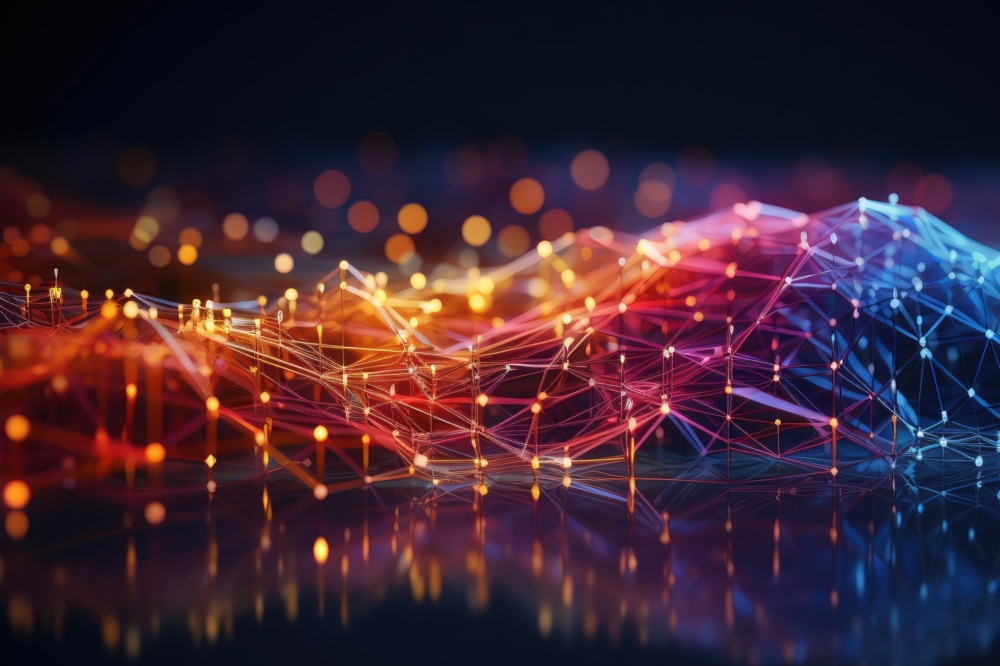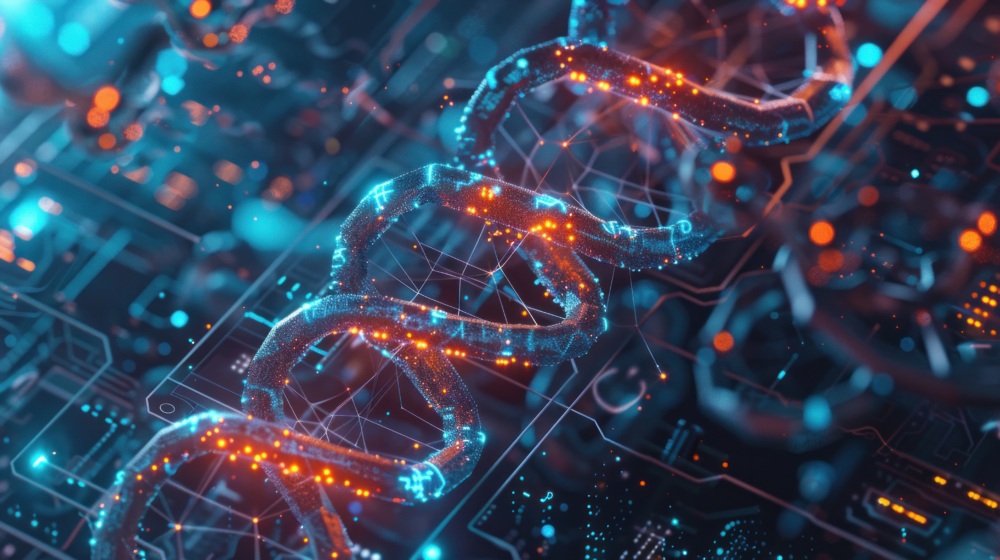
NTI | bio Attends a Cyberbiosecurity Workshop to Assess Opportunities and Challenges in India and Globally
NTI | bio’s Dr. Aparupa Sengupta joined a groundbreaking discussion on the nexus of cyber- and bio-security.
NTI hosted a wide-ranging discussion on the implications of artificial intelligence technologies for nuclear and biosecurity at its October 24 Board of Directors dinner in Washington, D.C. Moderated by Washington Post columnist David Ignatius, the discussion centered around both the benefits and challenges of AI across the globe.
The amount of growth and capability in artificial intelligence in the last several years is “mindboggling – even for someone who is in it every day,” said Jill Hruby, Under Secretary for Nuclear Security at the Department of Energy and Administrator of the National Nuclear Security Administration (NNSA). “Technology is the center of the battle that we are in, in the world right now, and AI is the center of the center.”
“There are a lot of opportunities to engineer proteins and enzymes to really improve the world and make the world more sustainable,” said Emily Leproust, CEO and Co-Founder of Twist Bioscience and a newly elected member of NTI’s Board of Directors. However, she also cited the creation of “biofactories” that can do “good things but also potentially could do bad things.”
As CEO of Twist Bioscience, a synthetic biology and genomics company, Dr. Leproust is working to enable the exponential growth of DNA-based applications. “We take our role very seriously in making sure we promote the ethical use of DNA,” she said. “The world needs the benefit of biotechnology, but at the same time, we have a huge responsibility” to make sure there is not any accidental or negative impact.
Hruby served as NTI’s inaugural Sam Nunn Distinguished Fellow, completing her year-long term in November 2019, and later as an NTI Board member until she was called back into government service in 2021. During her time as a fellow at NTI, she was the co-author of the report “Assessing and Managing the Benefits and Risks of Artificial Intelligence in Nuclear Weapon-Systems.”
When asked by Ignatius about AI challenges in the nuclear arena, Hruby said she worries about “what can AI find for people who want to learn about nuclear weapons.” She explained the challenge of “controlling” AI, while also using it to its advantage.
“On the nuclear non-proliferation side, there are huge benefits to using AI—to find proliferators, to look for signals in the haystack. On the nuclear weapons side, there’s a lot of potential benefits. The question: is anyone looking at how to put it all together? That is going to be one of our challenges,” she said.
Hruby said it is important for the United States to talk to China and other countries about artificial intelligence. “This is the battlefield we find ourselves in,” she said describing the U.S. and China as the “two seeming superpowers in AI” and said we need to think about “new alliances” globally.
In response to a question from NTI Co-Chair and CEO Ernest J. Moniz, Leproust explained how AI could prove beneficial when the global community faces a future pandemic. “When the AI tools are better, we will be able to more easily predict which mutations are mutations of concern,” she explained. “There is a potential to leverage AI to better respond to the next pandemic … and minimize the human suffering.”
Ignatius turned to Leproust to close out the discussion. “Emily, you’ve offered so many encouraging comments on a subject that absolutely terrifies me, so any final words of encouragement?”
She replied, “I’m a literal optimist. My glass is ¾ full. There are many challenges in the world, but I actually believe we can make the world a better place and improve health and sustainability… I’m so glad about the work that NTI is doing to help promote the thinking and action to make sure we are safe for the very long-term.”
You can watch the entire conversation here.
Sign up for our newsletter to get the latest on nuclear and biological threats.
NTI | bio’s Dr. Aparupa Sengupta joined a groundbreaking discussion on the nexus of cyber- and bio-security.
To reduce biosecurity risks that arise at the intersection of AI and the life sciences, NTI | bio convened experts in synthetic biology, machine learning, bioinformatics, and international security policy to outline steps toward establishing an international AI-Bio Forum.
NTI | bio convened more than 25 high-level biosecurity professionals, AI experts, and policymakers for the inaugural meeting of the International AI-Bio Forum.

